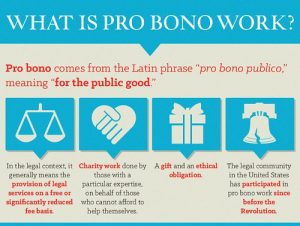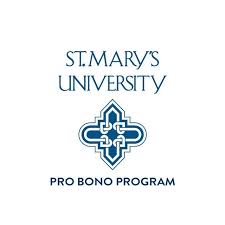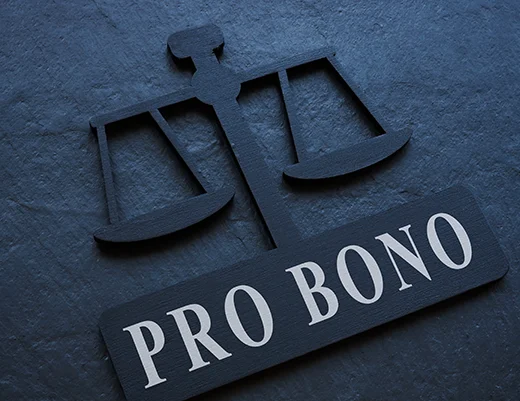Pro Bono: A Pathway to Social Change and Legal Reform
Pro Bono legal work allows attorneys to directly impact the lives of individuals and communities in need. If you’re an attorney, your skills can help those who can’t afford legal services or other professional support. In the case of students or others considering a career in law, understanding Pro Bono work is important because once you’re in law school or beginning your practice. As a student, Pro Bono work can be a great way to help your community through the clinics associated with your law school. 1 When you start your first position or begin your own practice, you continue to build professional skills gaining additional experience and you make a difference in the lives of those you provide services to.

1. Understanding Pro Bono
“Pro Bono” is a Latin term meaning “for the public good.” 2 It refers to professional services, most commonly in the legal field, that are provided voluntarily and without charge to clients or organizations in need, particularly those who cannot afford the costs. Lawyers, for example, often contribute at least 50 hours of Pro Bono service per year. Occasionally, non-legal firms may also donate their services.

2. The Importance of Pro Bono Work
The importance of Pro Bono work lies in ensuring that individuals who cannot afford legal services have access to justice, just like others that are more affluent. Pro Bono work allows you to directly impact the lives of individuals and families in need. For attorneys, it provides a meaningful way to contribute to social change and helps young litigators do good in the world, especially in these challenging times.
Moreover, Pro Bono work provides lawyers with valuable experience and opportunities to explore new areas of law. It also offers a chance to build their professional network. In addition, October is celebrated as National Pro Bono Month. 3The main reason for this observance is to highlight the power of legal services in promoting community well-being.
3. Attorney Interview: Insights from a Corporate Lawyer
James who is a retired lawyer that works in corporate law and also participates in Pro Bono work. 4 As an entry-level corporate lawyer, he typically handles various legal tasks involving business law, corporate governance, mergers and acquisitions, compliance with regulatory frameworks, and contracts. He mentioned that many corporate lawyers, especially at larger law firms, are encouraged or required to take on Pro Bono cases, offering free legal services to those who cannot afford them. Below are some of his thoughts on the positives and challenges of Pro Bono work:
Positives:
- Social Responsibility: Pro Bono work helps lawyers give back to their communities and promote access to justice.
- Skills Development: Pro Bono cases often expose lawyers to different kinds of legal issues, allowing them to develop a well-rounded skill set.
- Networking: Pro Bono work helps build relationships with organizations that may become future clients or collaborators.
Challenges:
- Time Management: Balancing Pro Bono work with billable hours can be challenging, especially for entry-level lawyers.
- Limited Resources: Corporate lawyers might not always have the specific expertise needed for certain Pro Bono cases, which may require additional learning or guidance.
4. Pro Bono Structure at Robins Kaplan Firm
Some large firms commit significant time and effort to Pro Bono work. The Robins Kaplan Firm is one of these firms with a strong commitment to Pro Bono work 5. They have a full-time Pro Bono Counsel who matches opportunities with an attorney’s interests. Their Pro Bono program goes beyond just providing services; it also focuses on building and maintaining strong relationships with the organizations they work with. For example, if an attorney is going through a deposition or trial, they can reach out to trial experts who help with questioning and evidence presentation.
The firm collaborates with approximately 65 partner organizations that provide Pro Bono cases. Additionally, Robins Kaplan has a Billable-Hour Credit Policy, which allows attorneys to earn up to 100 hours of Pro Bono work credited as billable time.

5. Law School Pro Bono Programs
St. Mary’s Law School offers a Pro Bono Program for students interested in legal Pro Bono work. This program also monitors compliance with the school’s public service graduation requirement. All of the students are required to complete 30 hours of volunteer work.
The program helps students connect with law-related organizations such as the San Antonio Legal Services Association. Students who complete 100 hours of Pro Bono service are recognized at graduation with a certificate. are eligible for the AT&T Excellence in Pro Bono Legal Services Award. Some of their projects include small estate planning, volunteer income tax assistance, and the annual Alternative Spring Break gives law students the opportunity to practice their legal skills by engaging in the advocacy of legal decision-making.
6. Pro Bono as a Pathway to Legal Careers
For anyone aspiring to become a lawyer, Pro Bono work is an invaluable aspect of the profession. It not only provides essential legal services to underserved communities but also offers lawyers a deeper understanding of social justice issues. Pro Bono work cultivates essential skills like empathy, communication, and problem-solving. Those who engage in Pro Bono work contribute to the greater good while enriching their own professional journey, making them more compassionate and effective advocates for their clients.
- American Bar Association. https://www.americanbar.org/groups/center-pro-bono/celebrate-pro-bono/ ↵
- tps://www.merriam-webster.com/dictionary/pro%20bono ↵
- American Bar Association: his. ↵
- ↵
- https://www.americanbar.org/groups/center-pro-bono/publications/pro-bono-exchange/2024/probonospotlightrobbinskaplan/ ↵



